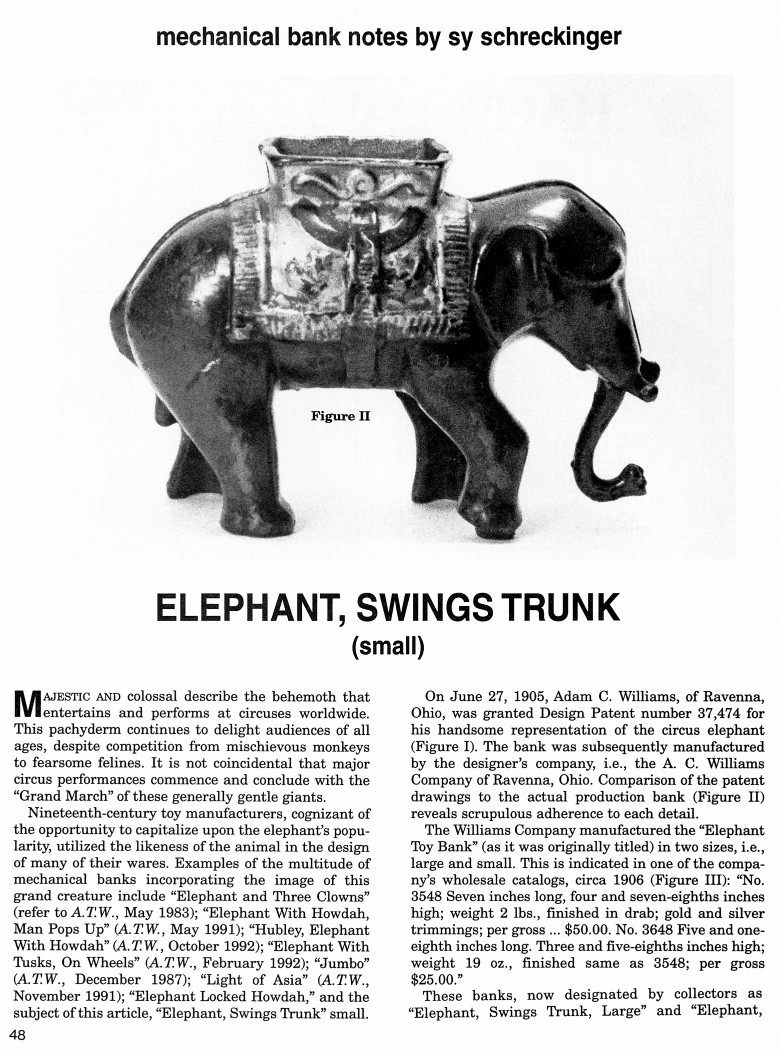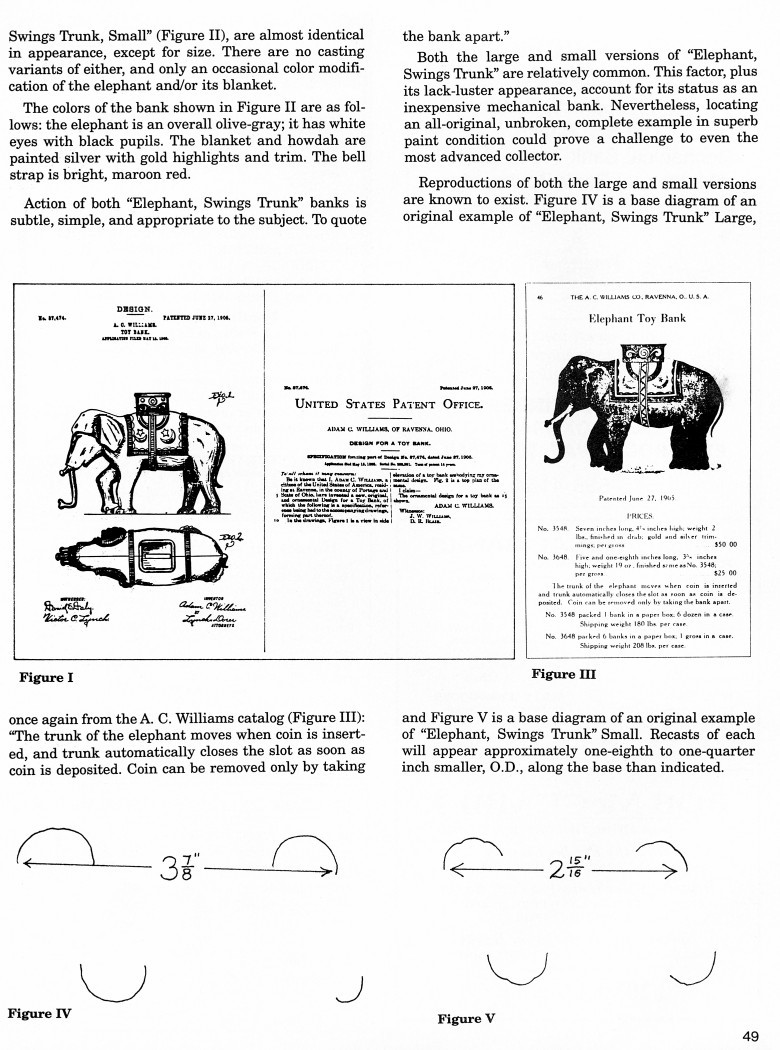|
Elephant, Swings Trunk
(small)
by Sy Schreckinger – ANTIQUE TOY WORLD Magazine – April, 1996
Majestic and colossal describe the behemoth that
entertains and performs at circuses worldwide. This pachyderm continues to
delight audiences of all ages, despite competition from mischievous
monkeys to fearsome felines. It is not coincidental that major circus
performances commence and conclude with the "Grand March" of these
generally gentle giants.
Nineteenth-century toy manufacturers, cognizant of the opportunity to
capitalize upon the elephant's popularity, utilized the likeness of the
animal in the design of many of their wares. Examples of the multitude of
mechanical banks incorporating the image of this grand creature include
"Elephant and Three Clowns" (refer to A. T W.,
May 1983); "Elephant With
Howdah, Man Pops Up" (A.T.W.,
May 1991); "Hubley, Elephant With Howdah"
(A. T W., October 1992); "Elephant With Tusks, On Wheels" (A.T.W.,
February 1992); "Jumbo" (A.T.W.,
December 1987); "Light of Asia" (A.T.W.,
November 1991); "Elephant Locked Howdah," and the subject of this article,
"Elephant, Swings Trunk" small. On June 27, 1905, Adam C. Williams, of
Ravenna, Ohio, was granted Design Patent number
37,474 for his handsome
representation of the circus elephant (Figure I). The bank was
subsequently manufactured by the designer's company, i.e., the A. C.
Williams Company of Ravenna, Ohio. Comparison of the patent drawings to
the actual production bank (Figure II) reveals scrupulous adherence to
each detail.
The Williams Company manufactured the "Elephant Toy Bank" (as it was
originally titled) in two sizes, i.e., large and small. This is indicated
in one of the company's wholesale catalogs, circa 1906 (Figure III): "No.
3548 Seven inches long, four and seven-eighths inches high; weight 2 lbs.,
finished in drab; gold and silver trimmings; per gross ... $50.00. No.
3648 Five and one-eighth inches long. Three and five-eighths inches high;
weight 19 oz., finished same as 3548; per gross $25.00."
These banks, now designated by collectors as "Elephant, Swings Trunk,
Large" and "Elephant, Swings Trunk, Small" (Figure II), are almost
identical in appearance, except for size. There are no casting variants of
either, and only an occasional color modification of the elephant and/or
its blanket.
The colors of the bank shown in Figure II are as follows: the
elephant is an overall olive-gray; it has white eyes with black pupils.
The blanket and howdah are painted silver with gold highlights and trim.
The bell strap is bright, maroon red.
Action of both "Elephant, Swings Trunk" banks is subtle, simple, and
appropriate to the subject. To quote once again from the A. C. Williams
catalog (Figure III): "The trunk of the elephant moves when coin is
inserted, and trunk automatically closes the slot as soon as coin is
deposited. Coin can be removed only by taking the bank apart."
Both the large and small versions of "Elephant, Swings Trunk" are
relatively common. This factor, plus its lack-luster appearance, account
for its status as an inexpensive mechanical bank. Nevertheless, locating
an all-original, unbroken, complete example in superb paint condition
could prove a challenge to even the most advanced collector.
Reproductions of both the large and small versions are known to
exist. Figure IV is a base diagram of an original example of "Elephant,
Swings Trunk" Large, and Figure V is a base diagram of an original example
of "Elephant, Swings Trunk" Small. Recasts of each will appear
approximately one-eighth to one-quarter inch smaller, O.D., along the base
than indicated.
|


